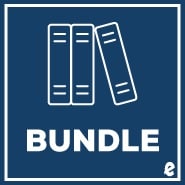
Gail Tompkins I’m a teacher, first and foremost. I began my career as a first-grade teacher in Virginia in the 1970s. I remember one first grader who cried as the first day of school was ending. When I tried to comfort him, he sobbed accusingly, “I came to first grade to learn to read and write and you forgot to teach me.” The next day, I taught that child and his classmates to read and write! We made a small patterned book about one of the stuffed animals in the classroom. I wrote some of the words and the students supplied the others, and I duplicated copies of the book for each child. We practiced reading it until everyone memorized our little book. The children proudly took their books home to read to their parents. I’ve never forgotten that child’s comment and what it taught me: Teachers must understand their students and meet their expectations.
My first few years of teaching left me with more questions than answers, and I wanted to become a more effective teacher so I started taking graduate courses. In time I earned a master’s degree and then a doctorate in Reading/Language Arts, both from Virginia Tech. Through my graduate studies, I learned a lot of answers, but more importantly, I learned to keep on asking questions.
Then I began teaching at the university level. First I taught at Miami University in Ohio, then at the University of Oklahoma, and finally at California State University, Fresno. I’ve taught preservice teachers and practicing teachers working on master’s degrees, and I’ve directed doctoral dissertations. I’ve received awards for my teaching, including the Provost’s Award for Excellence in Teaching at California State University, Fresno, and I was inducted into the California Reading Association’s Reading Hall of Fame. Throughout the years, my students have taught me as much as I taught them. I’m grateful to all of them for what I’ve learned.
I’ve been writing college textbooks for more than 20 years, and I think of the books I write as teaching, too. I’ll be teaching you as you read this text. As I write a book, I try to anticipate the questions you might ask and provide that information.Compendium of Instructional Procedures
The New copy of this book will include any supplemental materials advertised. Please check the title of the book to determine if it should include any access cards, study guides, lab manuals, CDs, etc.
The Used, Rental and eBook copies of this book are not guaranteed to include any supplemental materials. Typically, only the book itself is included. This is true even if the title states it includes any access cards, study guides, lab manuals, CDs, etc.